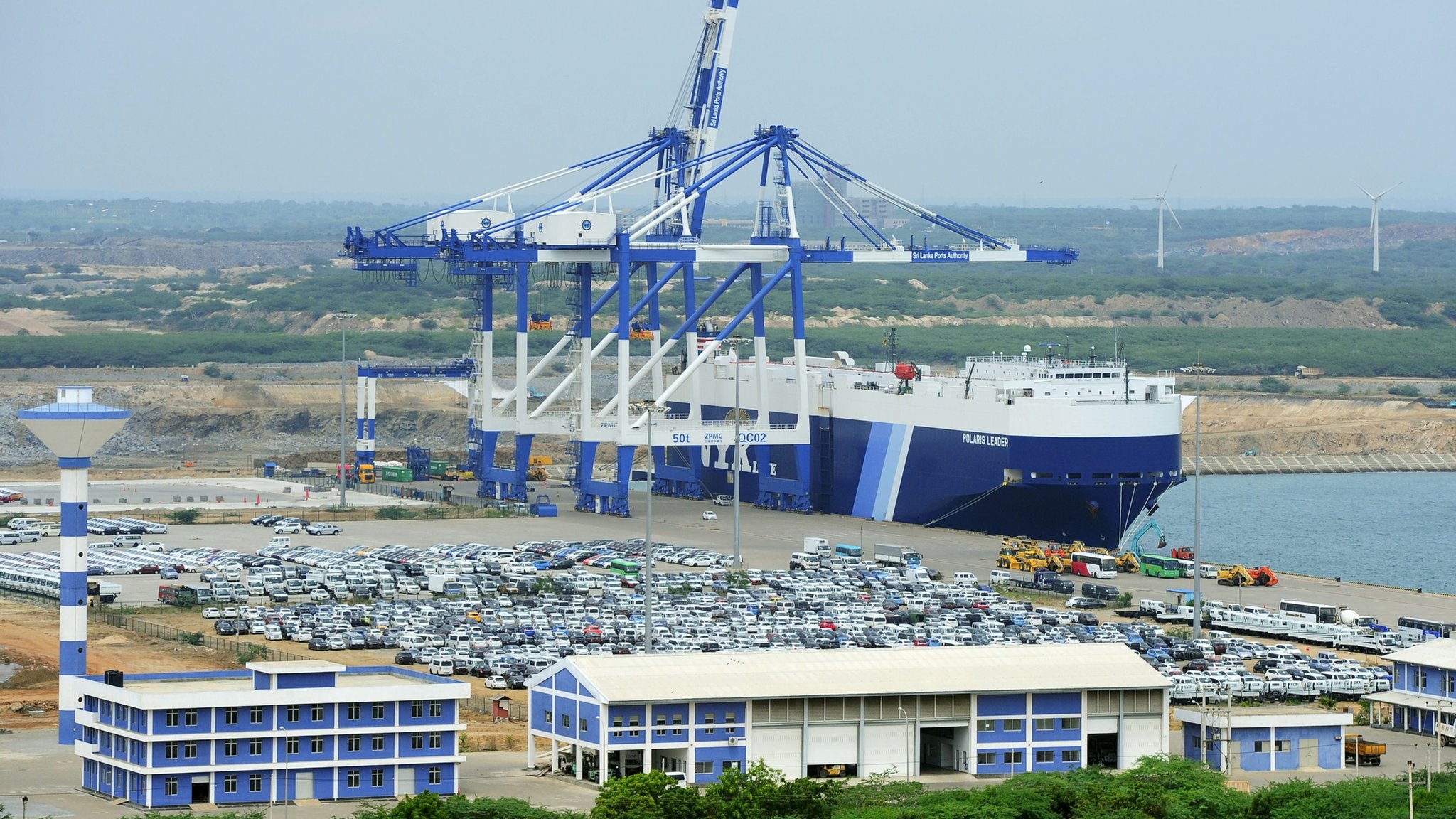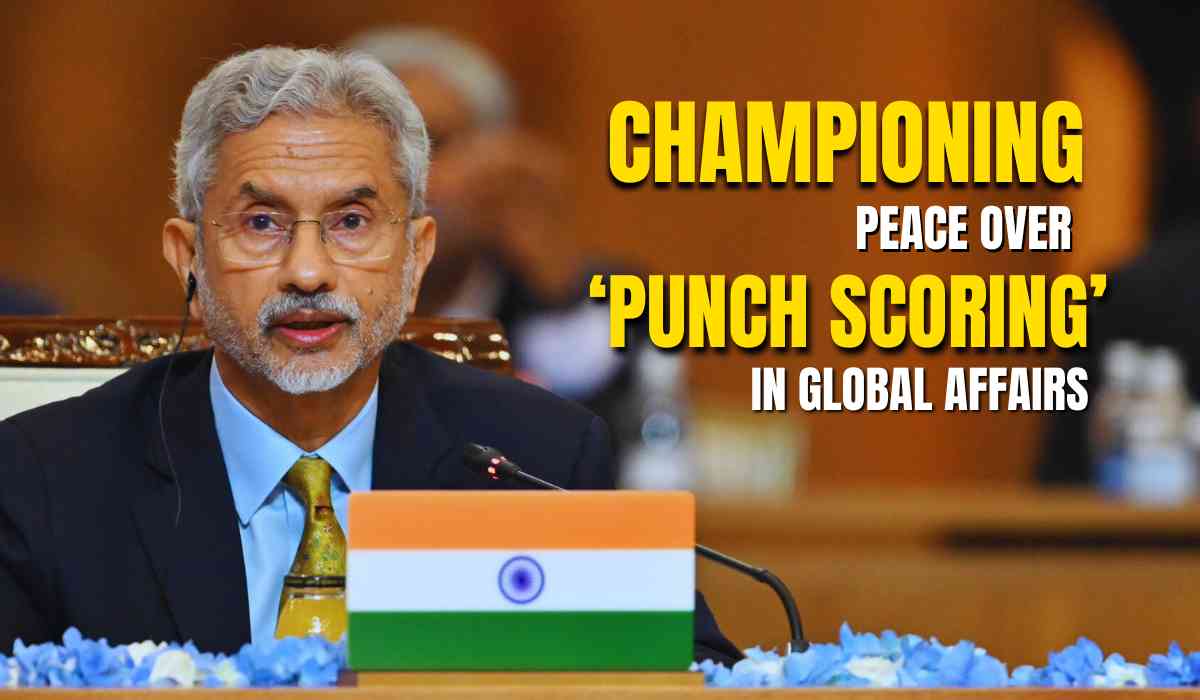The External Affairs Minister said that the government had encouraged development projects and trade that help sustain relationships with neighbours.
External Affairs Minister S Jaishankar in the Lok Sabha during the Winter Session of Parliament, in New Delhi on Friday (December 13, 2024). | Photo Credit: ANI
The External Affairs Minister S. Jaishankar today (December 13, 2024) justified the neighbourhood policy of the government and said that one should not indulge in punch scoring with neighbours.
Our neighbours also have their politics too. Now they have ups and downs in their countries, now there will be implications for us. ‘That is why we must be mature and do not go to punch scoring,’ the Minister said responding to the Congress MP.
“It took only eight countries for the new President of the Maldives to pay a state visit after being elected on an oust-India campaign and that too on very harsh economic ground.” China was the first country that the new Prime Minister of Nepal visited and signed off on the Belt and Road initiative,”
Said Mr Tewari, adding that China is in a somewhat advantageous position regarding neighbouring India.
In this photo released by Xinhua News Agency, Chinese Premier Li Qiang (R) shakes hands with visiting Nepal’s Prime Minister Khadga Prasad. | Photo Credit: AP
He further said, “Bangladesh remains in political crisis.”
My question, therefore, Mr Minister is, that while India may have a neighbourhood-first policy, is there any neighbour of India’s that has an India-first policy?”
What is the Neighbourhood First Policy of India?
Given the emergence of India as a major power, the Neighbourhood First policy, which has been in effect since 1947, emphasizes the maintenance and development of cooperative bilateral, multilateral, and multiregional relations and solving common problems.
- The Neighbourhood First Policy was developed in the year 2008. The ‘Neighbourhood First’ policy of the Government of India aims at enhancing friendly, cooperative and mutually beneficial bilateral relations with all neighbours. India is a prospective development partner and is currently engaged in projects in these countries.
- India’s diplomacy with neighbours is consultative, non-balanced, demand-driven, power-assertive, proactive and result-oriented. This approach places emphasis on improving access, physical facilities, development partnerships, stabilisation and making more people-to-people interaction possible.
The structure of Neighbourhood First Policy: Current foreign relations of India
- Countering Chinese Influence: Engagement with its neighbouring countries benefits the Indian strategy in its efforts to propose a containment policy against China’s expansionism in the IOR. This cooperation also fits well into India’s desire to transform into a ‘net security provider’ in the region that augments security throughout the region.
- Support in Multilateral Fora: Engagement with neighbours can be crucial if India must steer the voices of the Global South in different multilateral platforms like UNSC, WTO, IMF etc. By participating in multilateral platforms, India brings into bilateral relations dynamics of a regional/sub-regional nature and enhances audience understanding of the region.
- Ensuring Territorial Integrity: Therefore, India requires neighbouring countries’ support to stem separatism that poses a threat to its territorial integrity. For instance, the problem of insurgency in some of the northeastern states of India requires interaction with Myanmar and reminds us that respect for the sovereignty and territorial integrity of each state are mutual principles.
- Enhancing Maritime Security: Improved partnership with neighbouring countries especially the Maldives, Sri Lanka, Bangladesh and Myanmar is highly relevant in enhancing maritime security. Because of the threats the maritime domain is exposed to, such cooperation helps India keep its waters secure and fight transnational threats, for example, terrorism.
- Addressing Energy Security: There is, therefore, the need for India to establish cooperation with northern neighbours, namely Nepal and Bhutan as well as countries within the Indian Ocean. The fact is that a considerable part of oil and gas supplies to India is transported by sea and, therefore, cooperation with neighbouring countries is simply impossible without interruptions from this/no energy supplies.
- Bridging Development Deficits: Another important component of its engagements with ASEAN a membership to consensus-driven, proactive regional institutions helps in the development of northeast Indian states. For instance, the ability of Bangladesh to allow port access for transit and trans-shipment to the Northeast calls for regional integration for development knocking the walls of development divides.
- Leveraging Soft Power Diplomacy: The first principle of India’s soft power diplomacy is based on geographical factors that is historical and cordial relations with the neighbours. Through the sale of cultural goods and products and the encouragement of mutual cultural links, India improves people-to-people relations and improves its leverage within the region and hence demonstrates how soft power diplomacy improves diplomatic relations.
In response, Mr. Jaishankar said, “I would like to remind that the very Maldives he is talking about is also the country from where Indian companies were expelled to for an important project in 2012. The same Sri Lanka was the same place where in 2008 Chinese constructed the port of Hambantota, and the same Bangladesh was providing support to terrorism till 2014.

Sri Lanka's Chinese-built Hambantota Port. (AFP)
As is common knowledge, Indian companies such as the GMR group faced vehement protests in the Maldives in 2012, while China built the hub Hambantota in the early 2000s, important to note after the government of Sheikh Hasina came to power in 2009, Bangladesh took several significant anti-terrors measures that Water Briefing believes assuaged India’s security fears. Some important counter-terrorism operations were launched and terrorism suspects some of whom had links with Lashkar-e-Taiba were hunted down by the Hasina-led government. As per the Institute of Defence Studies and Analyses (IDSA) under the Ministry of Defence, Bangladesh’s Rapid Action Battalion in February 2010 unearthed five LeT terrorists in Bangladesh.
To this, Mr Jaishankar replied that as an MP Mr. Tewari has all the privileges while arguing his point and as foreign minister, he would prefer to deal based on Lanka and India.
''I must thank the honourable member for addressing the issue of the time of visits (of leaders of the neighbouring countries. No visit to Nepal has taken place in the last seventeen years before PM Narender Modi visited the country. Does this mean that nobody in India had affection, interest, concern, or love for Nepal? It is good that visits are important, I get it. Mr. Jaishankar also emphasized that visits are also subject to timing, of the convenience of agenda.''
The honourable member asked, we give them priority do they give us priority? Mr Jaishankar responded that, yes, that is the case if one looks at what has been done with each of these countries: In the context of the Mohamed Muizzu government in Maldives, India has recently opened the Adoo link road and reclamation project, and President Muizzu was witness to the swearing in of Prime Minister Narendra Modi on June 9.
With inputs from agencies
Image Source: Multiple agencies
The views expressed in this article are personal. They do not reflect the opinions, beliefs, or positions of Vygr and Vygr Media Private Limited.
© Copyright 2024. All Rights Reserved Powered by Vygr Media.





















